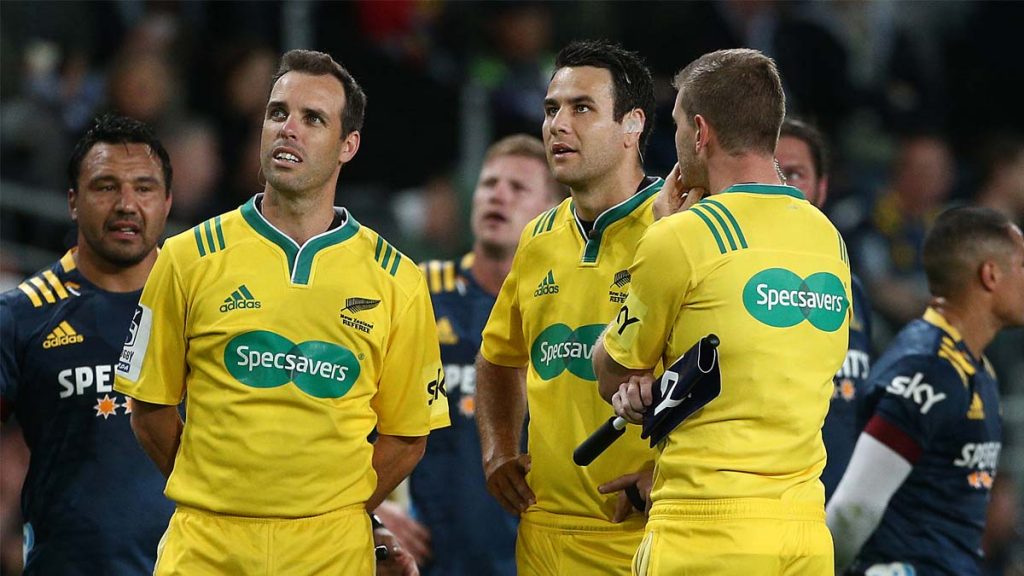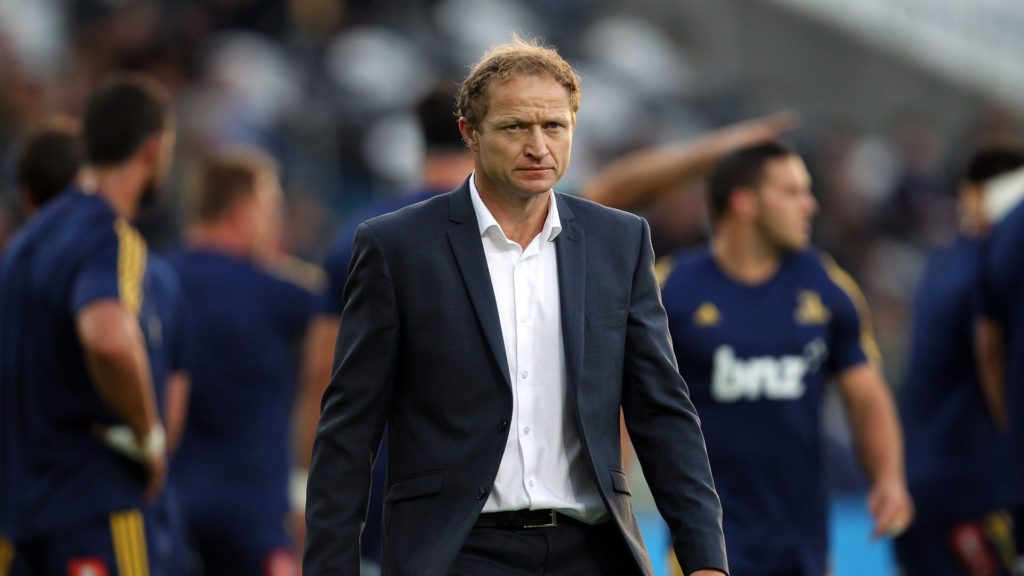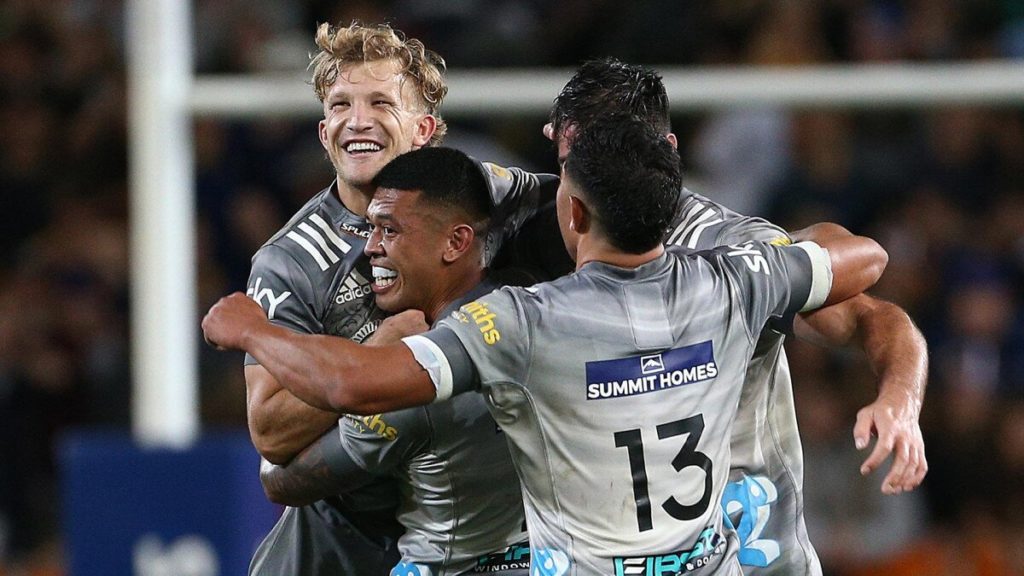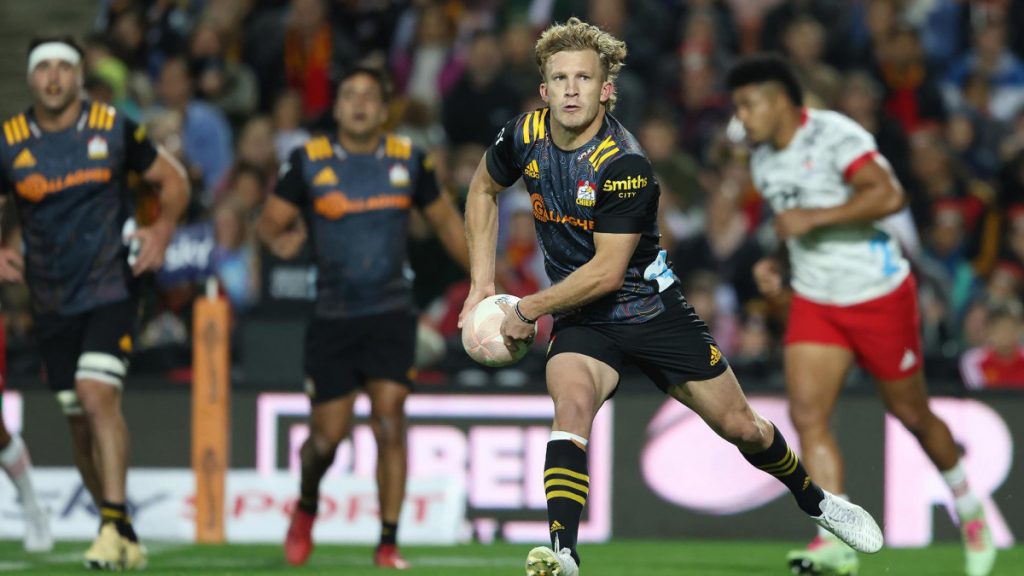There was a 50-second period in the Chiefs’ golden-point win over the Highlanders on Saturday night that, for all intents and purposes, never really happened.
From a regathered high kick, the Chiefs strung together phase after phase in the Highlanders’ half, with prop Aidan Ross eventually touching down for what would have been his second-ever Super Rugby try.
Then referee Ben O’Keeffe stepped in – he wasn’t happy with something that had happened at the beginning of the play, when Damian McKenzie went up in the air to claim the kick that started the whole affair.
It was clear to anyone who watched the replays that McKenzie had knocked the ball on. TMO Chris Hart quickly identified the error and back we all came – to a scrum near halfway.
Almost a minute had passes on the match clock since the initial kick. Factoring in the stoppage time that was needed for O’Keeffe and his refereeing team to make a decision, over two-and-a-half minutes had eclipsed.

The lost time wasn’t added back to the clock, of course – that’s not how rugby works.
Instead, fans, critics and players alike were left with the unusual situation where 50 seconds of match time was lost to the nether.
The Chiefs’ try was correctly scratched out – but even if the Highlanders had somehow reclaimed the ball and scored down the other end, that likely would have been culled from the scoreboard too.
It was dead time – but it didn’t need to be.
O’Keeffe wasn’t alerted to the potential knock-on by his assistant referees and nor did Highlanders co-captain Aaron Smith have to make a formal challenge; O’Keeffe had seen the potential error when it happened and made the call to check upstairs of his own volition.
fans, critics and players alike were left with the unusual situation where 50 seconds of match time was lost to the nether.
That’s exactly what rugby needs from its referees – for them to make decisions based on what they see on the park. The problem was that the decision came far too late.
That’s not O’Keeffe’s fault, however.
In years gone by, TMOs were able to comment on all matter of events but their powers have been significantly reduced in recent seasons. Now, their involvement is limited to the build-up to potential tries, or acts of foul play.
That was seemingly in direct response to professional coaches – including the Reds’ Brad Thorn and the Highlanders’ Tony Brown – criticising the influence that TMOs were having on the game, with the third official regularly chipping in with comments throughout matches, instead of letting the referee go about his business.
But there’s a fine medium to be found.

The referee isn’t going to have eyes everywhere on the park, there are always going to be occurrences that take place behind their back or away from the action, but in the case of the non-try, O’Keeffe should have been able to act immediately when he spotted the possible knock forward.
That doesn’t mean he needed to blow the whistle straight away.
In real-time, it was difficult to say whether McKenzie or his Highlanders opposite, Connor Garden-Bachop, had propelled the ball towards the Highlanders goal line. But O’Keeffe rightly knew that it was worth checking and he should have been able to refer the play upstairs in the moment, instead of having to wait for the eventual try.
Instead, everyone’s time was wasted – the fans and the players.
Last year, that wouldn’t have been the case; TMOs could only look back two phases before the act of scoring a try. Changes introduced to Super Rugby Aotearoa for the current season, however, mean that anything can be checked after a try is scored, up until the most recent stoppage.
The referee isn’t going to have eyes everywhere on the park, there are always going to be occurrences that take place behind their back or away from the action, but in the case of the non-try, O’Keeffe should have been able to act immediately when he spotted the possible knock forward.
Ross’ no-try illustrated the consequences of the change.
If O’Keeffe had been able to refer the knock-on upstairs in real-time, play would have gone back for a scrum almost immediately and minimal seconds would have been wasted.
If TMOs were only able to look back two phases of play, minimal seconds would have been wasted.
Either way, there would have been considerably more flow to the match.
Ironically, the Chiefs’ second try of the game came from what looked like a forward pass – but O’Keeffe missed it and the Highlanders had already used their captain’s referral for the night.

There were some other strange quirks to Saturday night’s refereeing performance.
All things considered, Ben O’Keeffe had a relatively solid match, but his use of the advantage law should have raised a few eyebrows.
On a handful of occasions, penalty advantages were quickly terminated, with neither side actually getting much opportunity to take advantage of the free play, instead having to settle for the penalty.
Perhaps the most egregious example was in the final minute of regular play.
With 45 seconds left on the clock, the Chiefs were awarded an advantage on halfway after the Highlanders crept up into an offside position at the breakdown.
The ball was quickly spread to the right wing, where Jonah Lowe copped a high shot from Highlanders replacement Hugh Renton. The Chiefs retained the ball but O’Keeffe immediately blew his whistle.
On a handful of occasions, penalty advantages were quickly terminated, with neither side actually getting much opportunity to take advantage of the free play, instead having to settle for the penalty.
Renton wasn’t sin-binned – the Chiefs received no further benefit other than having two less-than-desirable locations where they could choose to take a penalty from, instead of just the one.
There was no reason for O’Keeffe to stop play at the time and it would have made sense for the Chiefs to be awarded another advantage to try and work their way further up the field. Instead, with the scores locked up at 23-all, McKenzie simply had to choose between taking a shot at goal from the middle of the park, or on a wider angle but slightly closer to the try line, as the crow flies.
McKenzie missed the kick and the game went to extra time – where the first team to score a point was set to take the spoils.
It was the first case of golden point in Super Rugby Aotearoa after the extra-time law was added last year and a toss of the coin handed the Highlanders a significant advantage – kicking off into Chiefs territory.

Because all that’s needed to end the match was a solitary point, regardless of how it was produced, the Chiefs were immediately under the pump. The Highlanders simply needed to be patient, work their way up the field and kick a drop goal. All the pressure was on the Chiefs – who had to repel the Highlanders without conceding a penalty.
Unsurprisingly, the Highlanders had the first chance to win the game – but Josh Ioane’s drop goal attempt sailed wide.
The Chiefs had almost zero possession during extra time but after the Highlanders tried to run the ball back from a kick, the penalty went the way of the visiting side and McKenzie was finally able to nail the kick that sealed the result.
Super Rugby AU also adopted the extra-time law last year but made an amendment for 2021, requiring the winning team to score a try – mitigating the effect of who gets to kick the ball off.
Thankfully, Saturday’s result wasn’t simply decided by who was given the first chance to score points but that doesn’t mean it won’t happen in the future.
On the balance, neither side will feel particularly hard done by. Ben O’Keeffe was relatively consistent throughout the match and, at the end of the day, it would be a tough ask arguing that the better side didn’t win – though there was certainly some luck involved.
That doesn’t mean that the refereeing body shouldn’t look at the match and consider making some tweaks to the laws, however. Fans and players alike understandably don’t like endless tinkering with the game but a few minor corrections here and there will create a better game for all and sundry.



Comments
Join free and tell us what you really think!
Sign up for free